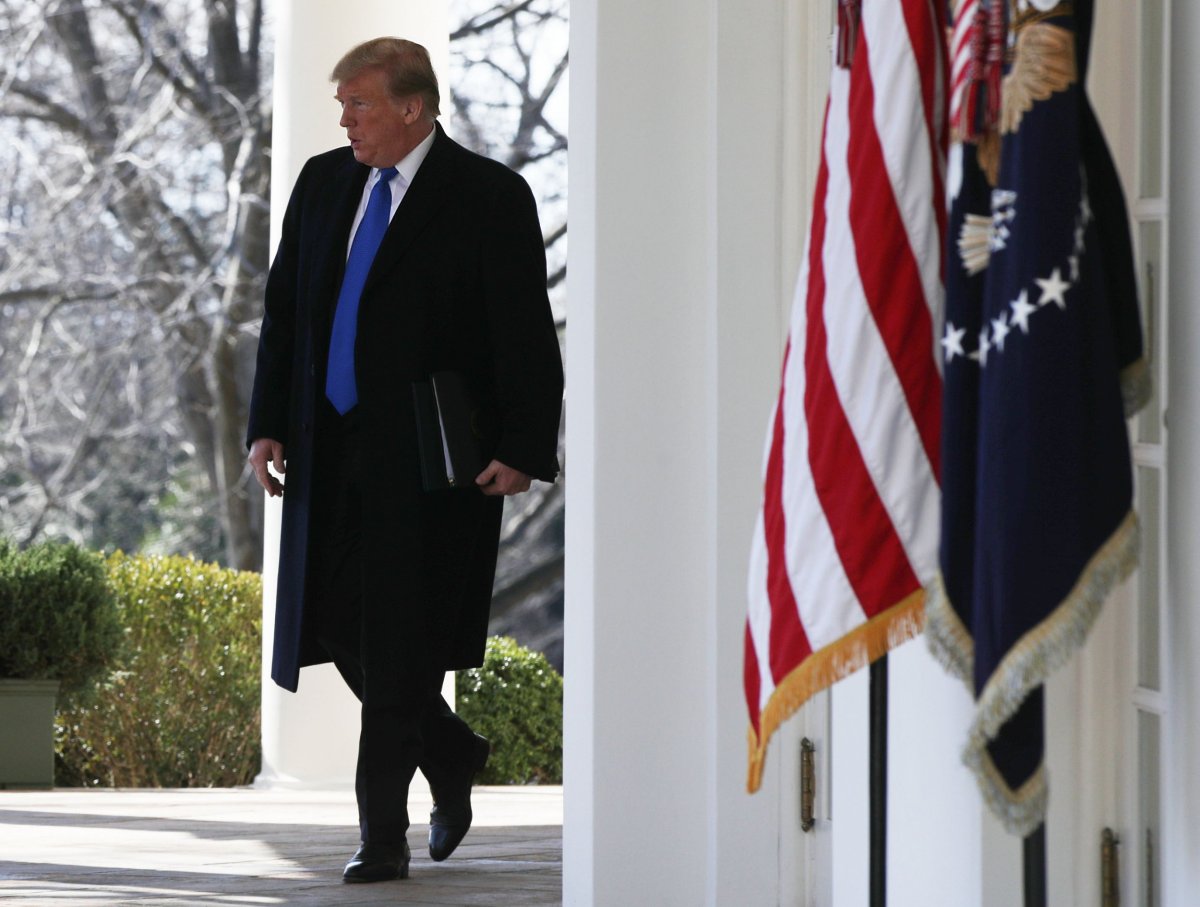Richard Painter, a former chief ethics lawyer in George W. Bush's White House, has called for President Donald Trump to be removed from office over his decision to declare a national emergency over immigration, saying he believes the U.S. leader is "not well."
Speaking on MSNBC on Monday, Painter said Trump's decision to plunge the United States into a national emergency in an apparent bid to bypass Congress to get billions of dollars of funding for the construction of his long-promised border wall was "clearly illegal."
"First, the statute, the National Emergencies Act, does not allow this, because this is not an emergency," Painter said. "If this is an emergency, the situation at the border, the illegal immigration issue, then just about anything could be an 'emergency.' Any policy priority of any president could be an emergency, and that's not the meaning of the word 'emergency' within the act."
"Second, if the act were to be so broad as to give the president the power to do this, it likely would be unconstitutional because you would have a Congress that passes such an act that would give the president the power to override future Congresses, raid the Defense budget or any other budget and use that money for purposes not allocated by Congress," the ethics expert said.
However, Painter said, "That's the legal argument. I think we need to understand why we're in this situation. The president is not well at all mentally."
Describing Trump as an "extreme narcissist," Painter said the president has only declared a national emergency because "he's been denied what he wants—his wall."
"He is having a hissy fit. He's out of control, and he will not take no for an answer from Congress. And he's going to do this, he's going to insist on doing it, he's going to tear the country apart. It's unconstitutional. It's illegal," Painter said. "He's going to do enormous damage to the Republican Party. We're just going to be split right down the middle of this and we really need to keep in mind that this is because the president is not well.
"This is a man who believes [Russian President] Vladimir Putin rather than his own intelligence sources," Painter continued. "He is not capable of doing the job. He does need to be removed under the 25th Amendment, but he stacked his Cabinet with people who are unwilling to do that, and Congress is apparently unwilling to even try to remove him through impeachment."
The former Bush White House chief ethics lawyer is far from the first person to question Trump's mental health. According to the World Mental Health Coalition, there are "thousands" of mental health experts and other professionals who have "come together in historically unprecedented ways to offer [the] consensus view that Donald Trump's mental state presents a clear and present danger to the world."
A 384-page New York Times best seller has also been dedicated to the issue, with The Dangerous Case of Donald Trump, offering analyses from more than two dozen psychiatrists and psychologists who warn that Trump's leadership poses serious "danger" to the U.S. and world at large.
While the state of Trump's mental health has been repeatedly called into question since he launched his election campaign, including by mental health experts, others have asserted that it is unethical for anyone, specialist or not, to attempt to diagnose someone they have not examined personally.
The American Psychiatric Association, which claims to be the largest psychiatric association in the world has previously warned its members not to wade into any debate around Trump's mental health, reminding specialists to follow codes of ethics discouraging them from providing professional opinions about the mental health of those they have not examined.
For psychiatrists, that piece of guidance is made clear in section 7.3 of the American Psychiatry Association's code of ethics, in what is known informally as the "Goldwater Rule." Inspired after psychiatrists participated in a survey about former Republican presidential candidate Barry Goldwater, calling him a "dangerous lunatic" ahead of his election loss, the 1973 rule states that "it is unethical for a psychiatrist to offer a professional opinion unless he or she has conducted an examination and has been granted proper authorization for such a statement."
While psychologists do not have an equivalent of the Goldwater Rule, the American Psychological Association's code of ethics does warn against experts attempting to diagnose anyone they have not examined themselves.

Uncommon Knowledge
Newsweek is committed to challenging conventional wisdom and finding connections in the search for common ground.
Newsweek is committed to challenging conventional wisdom and finding connections in the search for common ground.
About the writer
Chantal Da Silva is Chief Correspondent at Newsweek, with a focus on immigration and human rights. She is a Canadian-British journalist whose work ... Read more
To read how Newsweek uses AI as a newsroom tool, Click here.








